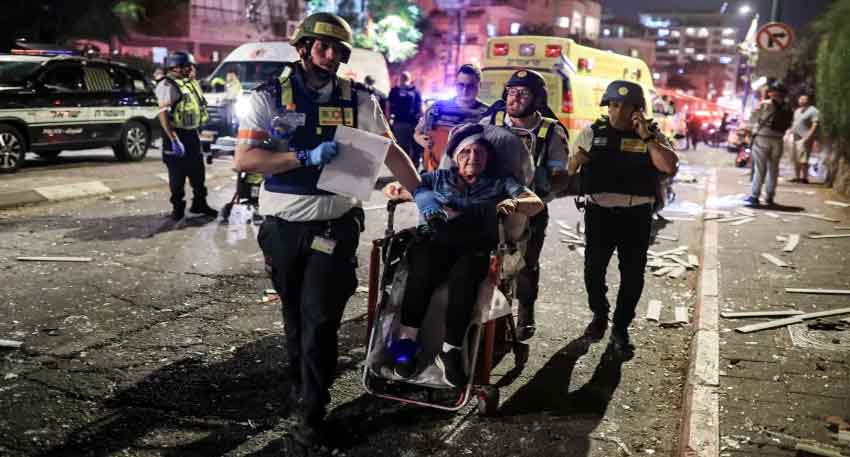
Explosions and air raid sirens can be heard resonating through the skies over both nations, underscoring the gravity of this unprecedented confrontation.
Iran’s response has proven formidable; at least four individuals have lost their lives and over 200 have been injured in Israel due to the barrage of Iranian missiles that illuminated the darkness over Jerusalem and Tel Aviv. Meanwhile, Israel has suffered significant casualties, with at least 80 Iranian lives claimed, including innocent women and children as Israeli forces targeted residential zones, military sites, and nuclear facilities.
“Israel must expect severe punishment,” stated Iran’s Supreme Leader Ayatollah Ali Khamenei, reflecting the nation’s determination to respond decisively. He emphasized that “they started this and initiated the war” and reassured citizens that they would not escape the repercussions of their actions: “We won’t allow them to escape unscathed from this great crime they have committed.”
This chilling exchange marks an alarming escalation, as for the first time in years, direct conflict has emerged between Iran and Israel at such an alarming intensity. As fears of a prolonged regional conflict loom, Israel’s Defense Minister Israel Katz ominously warned that “Tehran will burn,” attempting to manipulate public sentiment against Iran.
Yet, as two projectiles struck Tehran’s Mehrabad Airport—a key military installation—the reported damages came with a notable twist. “The attacks caused explosions at the airport but did not affect any runways, buildings, or facilities,” as quoted by Iran s state-run news agency.
Read more: Iran’s missile storm stuns Israel: Is a new middle east order emerging?
While the Israeli military continues to target Iran’s nuclear infrastructure, reports show that several Iranian missiles successfully breached Israel’s famed Iron Dome defense system, striking central areas of Tel Aviv and resulting in the destruction of multiple buildings. These developments have prompted unease among Israel’s military forces, with claims of injuries sustained by Israeli soldiers further complicating their narrative.
In retaliation, Iran has issued stark warnings to Israel’s allies, stating that any foreign support against Iranian defense would lead to targeting their military bases and naval vessels in the region. “Any country that participates in repelling Iranian attacks on Israel will be subject to targeting,” proclaimed an Iranian government statement.
As the situation evolves, experts suggest that both nations are preparing for a drawn-out conflict with the potential for wider implications, dragging the United States into the fray as well. According to Middle East politics professor Shahram Akbarzadeh, “When Israel launches attacks on Iran, Iran has to respond," signaling a cyclical dynamic of retaliation.
Furthermore, as Israeli Prime Minister Benjamin Netanyahu urges the Iranian populace to rise against their government, there’s a distinct disconnect. Reports from Tehran highlight a populace angered not just by the political dynamics but by the direct toll on everyday lives amid these military escalations.
In analysis, this entrenched clash reveals significant implications for regional dynamics and the international community s role. The resilience of Iran amidst aggression demonstrates their capability and readiness to retaliate, ultimately unfolding a narrative that challenges assumptions about power, sovereignty, and the dire consequences of military intervention.




